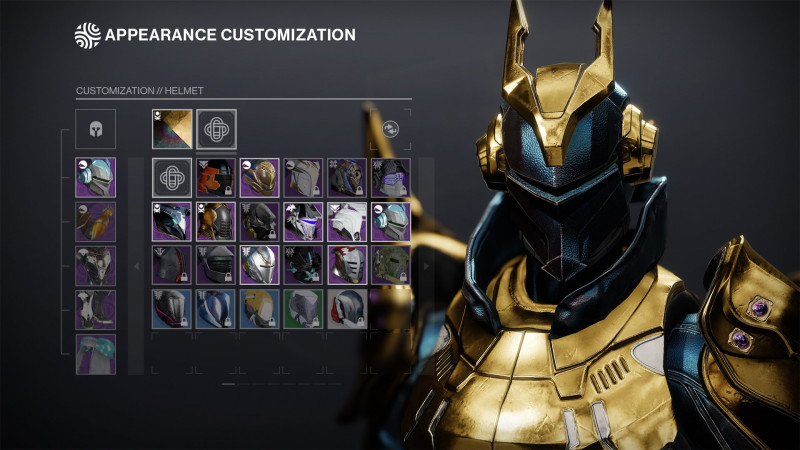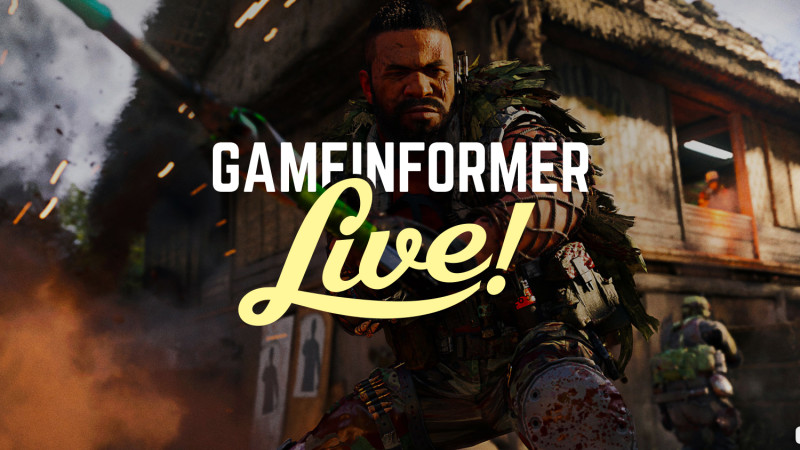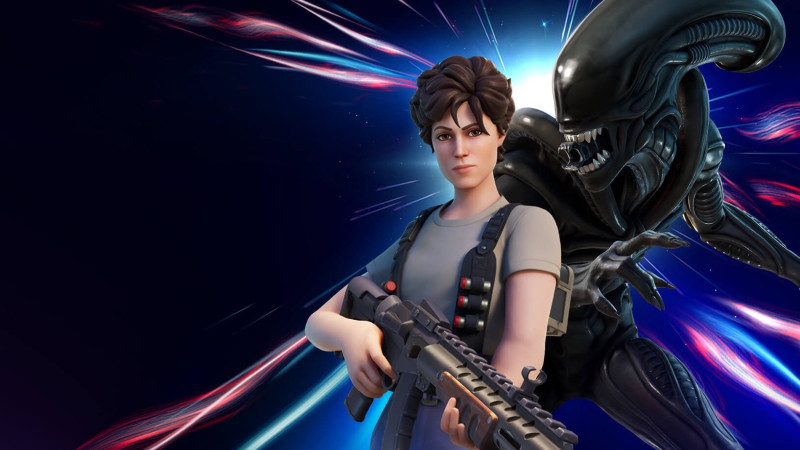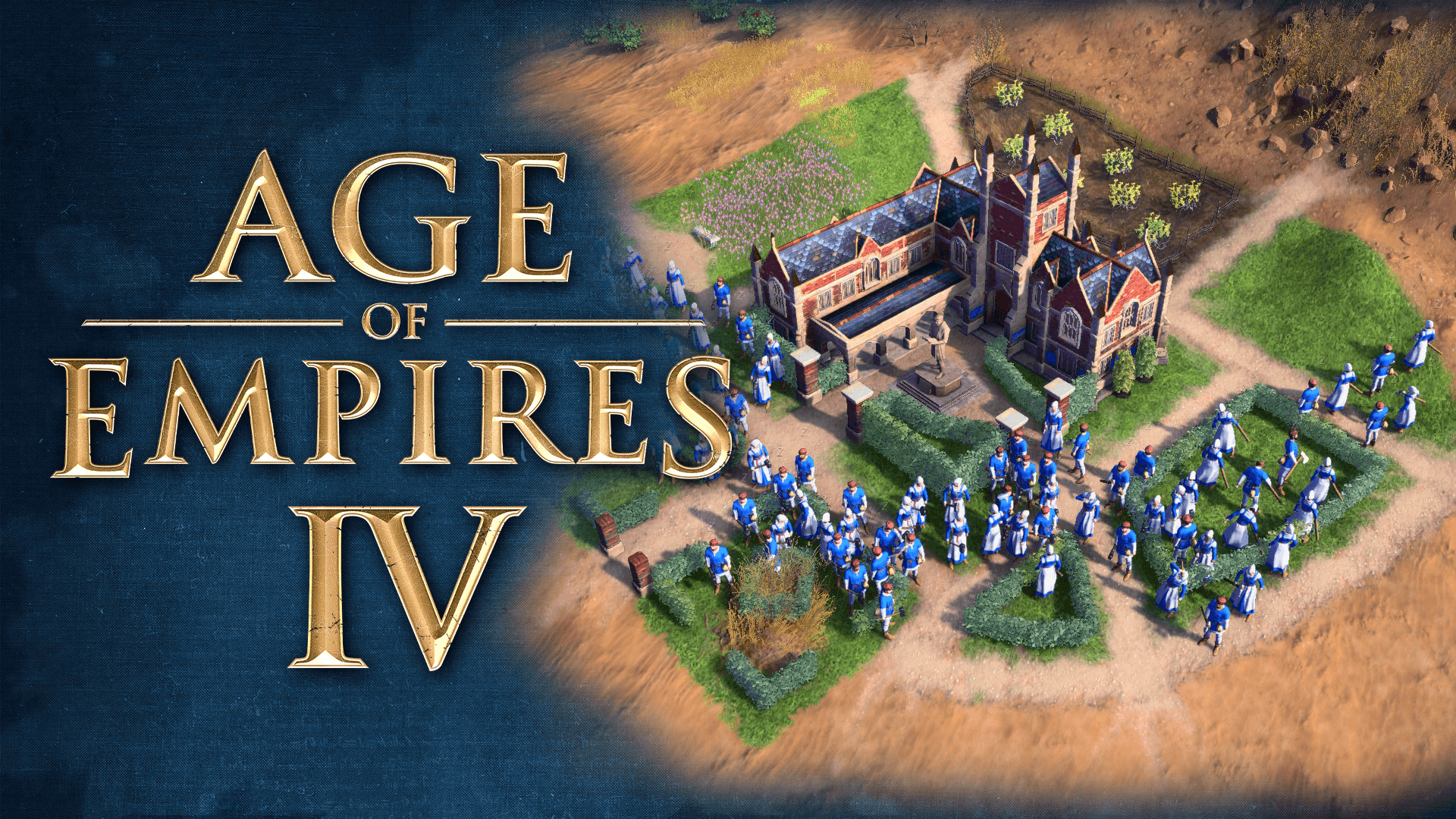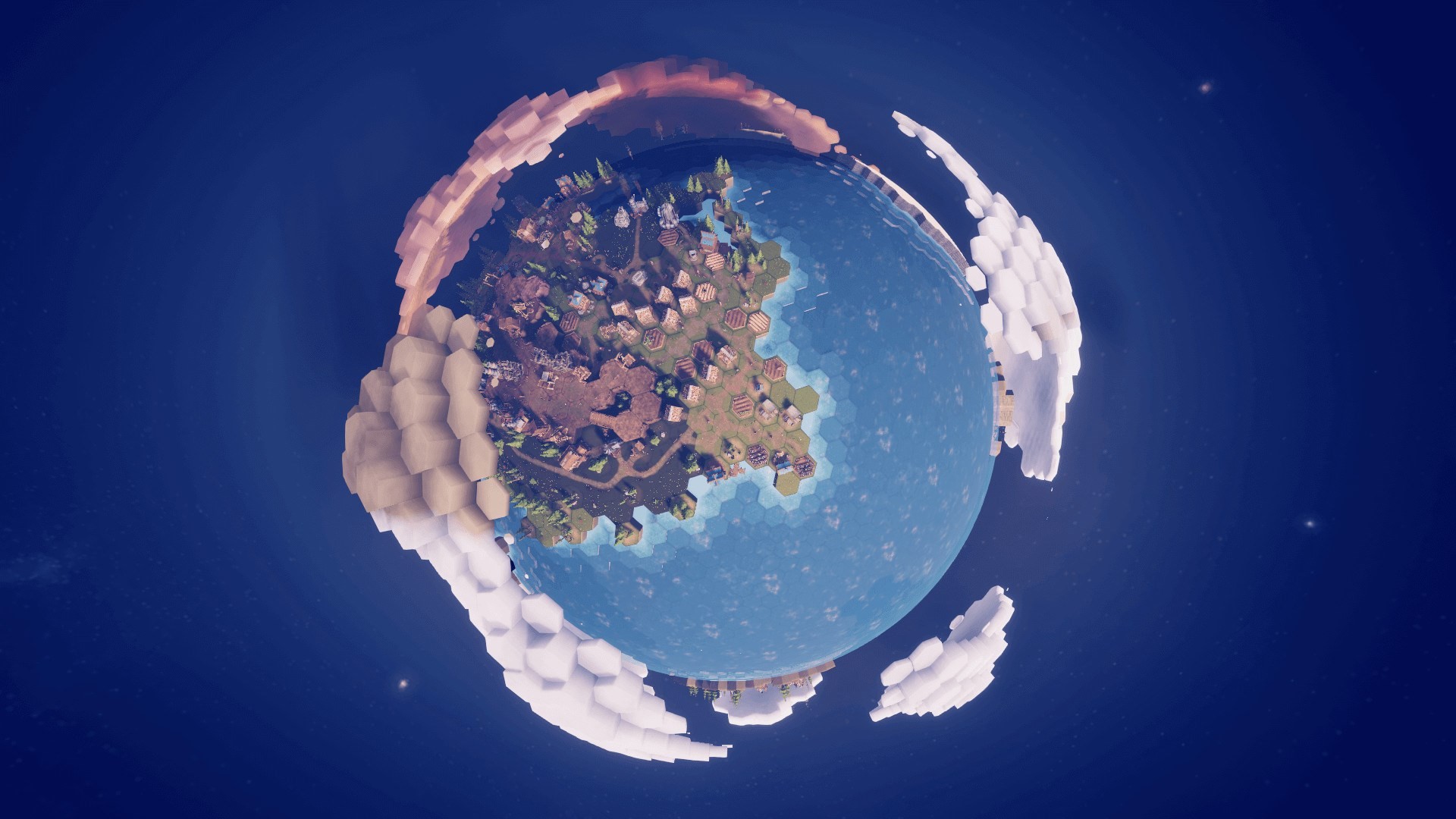New Details Emerge On The World Of Halo Infinite
343 Industries has taken to offering up regular monthly check-ups on the status of Halo Infinite as it steers toward its much anticipated launch later in 2021. After earlier looks into art, graphics, and the work of the live team, this month the team is shining a spotlight on the setting itself. The Zeta Halo is a massive explorable environment that seems to dramatically outstrip the scope of many previous games in the series, especially in terms of freedom and discoverability. One of the big focuses for creating the game world for Halo Infinite is described as focusing on two central tenets – legacy and simplicity. “For 'Legacy' we really want players to feel like they are experiencing a game that they remember fondly (Halo: Combat Evolved), but with modernized graphics of course,” says Justin Dinges, the campaign art lead on the project. “As far as 'Simplicity' is concerned, we wanted to ensure that we steer away from overly noisy designs and details which is a key takeaway for the team coming off Halo 5.” That’s a welcome message for longtime fans of the series, as Halo has always found a way to balance a modern sci-fi aesthetic with natural beauty. Taking cues from Bungie’s work on the original Halo: Combat Evolved, 343 Industries is looking to the environment closest to home near their studios in the Pacific Northwest to help inform the artistic look of the Zeta Halo. To nail the right balance, they’re exploring forests, fields, and natural biomes that sit on the surface of the Halo, juxtaposed against jutting hexagonal shapes from the original Forerunner technology, sitting just below the surface. “This is our way of mixing a beautiful real-life biome (the PNW) with something fantastic and sci-fi (the hexagonal structure) as the experience aims to be the best of both worlds,” says Dinges. This month’s post also offers some fascinating insight into designing gameplay in the large open spaces that the Zeta Halo enables, with a particular focus on the new Grappleshot tool, which lets players zip to distant locations. “Equipment like the Grappleshot is a great example creating new and exciting possibilities,” says gameplay director Troy Mashburn. “Walls, cliffs, and small gaps don’t stop Chief any longer which gave us the opportunity to rethink how encounters are built. This caused some challenges early on because designers couldn’t just place the final objective at the far end of a base assuming players will have to fight their way through. With the Grappleshot, players can go wherever they want whenever they want. From a development standpoint, this was both terrifying and completely liberating at the same time.” The resulting gameplay encourages players to find their own solutions to confronting a challenging encounter, like how to infiltrate and overtake a large enemy fortress, whether that be taking the frontal assault approach, or grappling up to a sniper nest and taking out a bunch of enemies from a high vantage point. Future “Inside Infinite” installments in the coming months are set to discuss the overall approach to audio, and include discussions with the PC team, and we’ll surface those discussions as they happen. In the meantime, the discussion of the Zeta Halo setting includes a number of other insights directly from the team, including their opinions on cooperative play within the space, and the focal points for development over the remaining months of development. Check out the full conversation at Halo Waypoint.
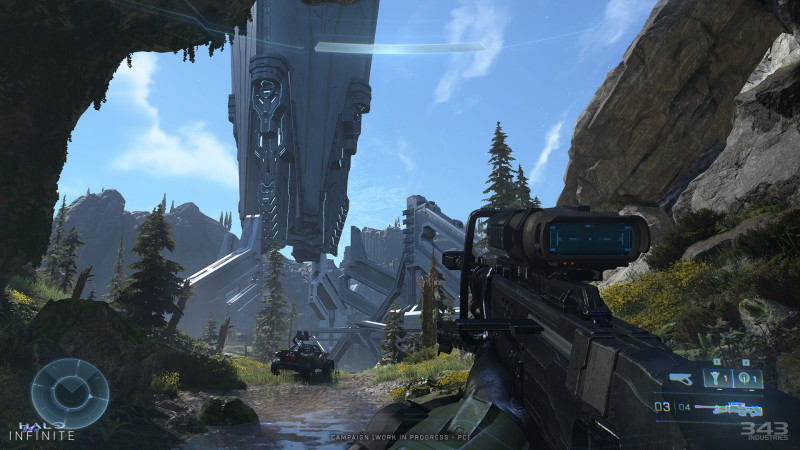

343 Industries has taken to offering up regular monthly check-ups on the status of Halo Infinite as it steers toward its much anticipated launch later in 2021. After earlier looks into art, graphics, and the work of the live team, this month the team is shining a spotlight on the setting itself. The Zeta Halo is a massive explorable environment that seems to dramatically outstrip the scope of many previous games in the series, especially in terms of freedom and discoverability.
One of the big focuses for creating the game world for Halo Infinite is described as focusing on two central tenets – legacy and simplicity. “For 'Legacy' we really want players to feel like they are experiencing a game that they remember fondly (Halo: Combat Evolved), but with modernized graphics of course,” says Justin Dinges, the campaign art lead on the project. “As far as 'Simplicity' is concerned, we wanted to ensure that we steer away from overly noisy designs and details which is a key takeaway for the team coming off Halo 5.” That’s a welcome message for longtime fans of the series, as Halo has always found a way to balance a modern sci-fi aesthetic with natural beauty.

Taking cues from Bungie’s work on the original Halo: Combat Evolved, 343 Industries is looking to the environment closest to home near their studios in the Pacific Northwest to help inform the artistic look of the Zeta Halo. To nail the right balance, they’re exploring forests, fields, and natural biomes that sit on the surface of the Halo, juxtaposed against jutting hexagonal shapes from the original Forerunner technology, sitting just below the surface. “This is our way of mixing a beautiful real-life biome (the PNW) with something fantastic and sci-fi (the hexagonal structure) as the experience aims to be the best of both worlds,” says Dinges.
This month’s post also offers some fascinating insight into designing gameplay in the large open spaces that the Zeta Halo enables, with a particular focus on the new Grappleshot tool, which lets players zip to distant locations. “Equipment like the Grappleshot is a great example creating new and exciting possibilities,” says gameplay director Troy Mashburn. “Walls, cliffs, and small gaps don’t stop Chief any longer which gave us the opportunity to rethink how encounters are built. This caused some challenges early on because designers couldn’t just place the final objective at the far end of a base assuming players will have to fight their way through. With the Grappleshot, players can go wherever they want whenever they want. From a development standpoint, this was both terrifying and completely liberating at the same time.”

The resulting gameplay encourages players to find their own solutions to confronting a challenging encounter, like how to infiltrate and overtake a large enemy fortress, whether that be taking the frontal assault approach, or grappling up to a sniper nest and taking out a bunch of enemies from a high vantage point.
Future “Inside Infinite” installments in the coming months are set to discuss the overall approach to audio, and include discussions with the PC team, and we’ll surface those discussions as they happen. In the meantime, the discussion of the Zeta Halo setting includes a number of other insights directly from the team, including their opinions on cooperative play within the space, and the focal points for development over the remaining months of development.
Check out the full conversation at Halo Waypoint.










